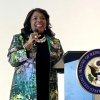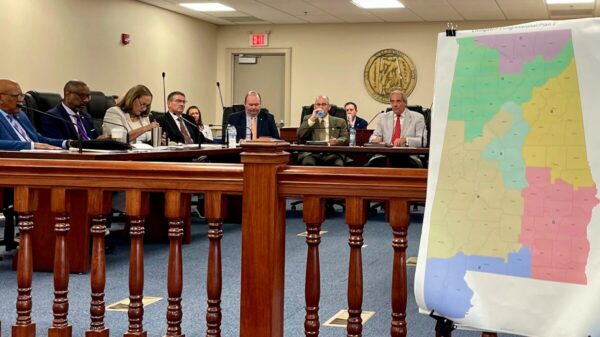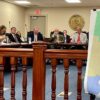|
Getting your Trinity Audio player ready...
|
The idea of a secret ballot and keeping your vote private has been around for a long time. It was first introduced in the 19th century to stop people from buying votes, and it has worked well. However, some new developments are putting this process at risk. Some people are trying to make voting more transparent, but it’s starting to backfire. For instance, in Texas, a right-wing website managed to determine how the state’s Republican Party chair voted in the primary and used this knowledge to coerce him into resigning. It’s even become possible for someone to figure out how an election official voted in Colorado in less than 20 minutes.
In Oklahoma, the state legislature proposed a bill to upload voters’ entire ballot information to a publicly accessible online database. Additionally, a proposal in Arizona would involve publishing voters’ names, addresses, birth dates, and other personal details online. And with all the political tension these days, this is dangerous. People in public positions are worried about what might happen if their vote is discovered. Unlike national politicians who have security, most state and local officials don’t have executive security in place.
A lot of this is happening because some people believe that there’s significant voter fraud in our country affecting election outcomes. In many jurisdictions, there is little or no evidence that this is true, and court cases and audits from multiple states have repeatedly confirmed most election outcomes to be consistent with unofficial results.
Thankfully, the problem of actual voter fraud is relatively small, impacting no more than a fraction of overall votes in any given election. Any time potential voter fraud is introduced, it must be investigated, evaluated, assessed, and prosecuted if evidence indicates fraud has occurred. During my two terms as Alabama Secretary of State, we received many (more than 1800) reports of voter or election fraud activities, and eight resulted in convictions for voter fraud specifically. This was the most of any state in the Union during that time.
Understandably, people want to know more about how votes are counted, but we should think carefully before making any significant changes. If states want to make ballots public, they should make sure people’s privacy is protected. There are ways to do this, like adding protections to information in precincts where everyone voted a certain way. North Carolina already does this, and it helps keep people’s votes private. Every state should consider what it should do to protect the voters.
It’s crucial that state officials prioritize the protection of people’s voting rights. In Texas, the attorney general and others intervened when voting secrecy was under threat, reminding everyone to keep personal information off of ballots. It’s imperative that officials act swiftly and decisively as threats to voting rights evolve.
While violence over voting is a rare occurrence, it’s a collective responsibility to prevent it. We must ensure that the intense political discourse doesn’t escalate into physical violence. By maintaining a respectful and civil dialogue, we can uphold the integrity of our democratic process and protect our rights to a private vote and a secret ballot!



















































